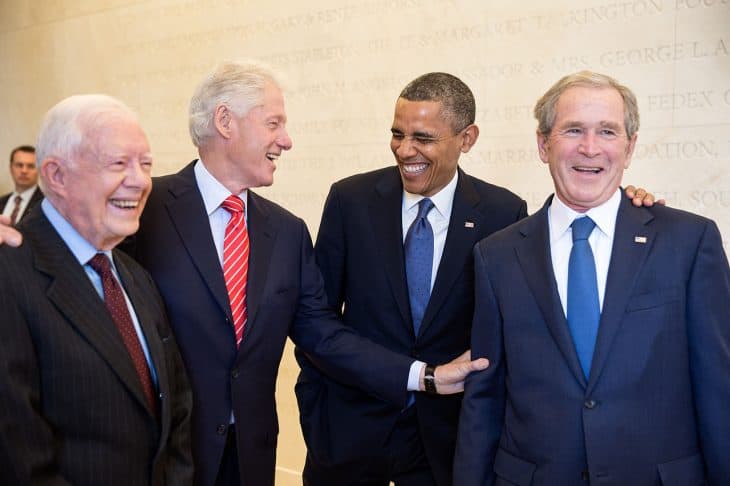
The Founding Fathers of America once decided that one elected person should lead the executive branch. Now known as the US President, this governmental structure has remained true for the past 200 years. Learn more about the people who assumed office with these US Presidents facts.
- The US has had 45 presidents.
- 12 of the US presidents owned slaves, and 8 of them enslaved people while in office.
- 26 of the US presidents were lawyers.
- 29 of the US presidents served in the military.
- 4 US presidents won the Nobel Peace Prize: T. Roosevelt, W. Wilson, J. Carter, and B. Obama.
- 8 US Presidents were born in Virginia, making it the state with the most presidents born.
- Out of 50 US states, 31 have never claimed a native-born President.
- John Adams was the first US President who lived in the White House.
- 5th US President James Monroe was a law apprentice for 3rd US Pres., Thomas Jefferson.
- Millard Filmore did not have a Vice President throughout his time in office.
- Woodrow Wilson is the only US President buried outside Washington, D.C.
- Franklin D. Roosevelt was the first US President to fly in a plane.
- Richard Nixon was the first US President to visit all of the 50 states.
- Jimmy Carter founded the Department of Energy.
- Barack Obama was listed Time’s 100 Most Influential People in 2005, 2007, 2013, and 2014.
- All of the state representatives voted for George Washington, making him the only unanimously elected president in history.
- George Washington and James Madison were the only presidents who signed the Constitution.
- 17th US Pres. Andrew Johnson had to self-learn reading as he never attended school.
- 26th US Pres. Theodore Roosevelt was the first to travel abroad while in office.
- 40th US Pres. Ronald Reagan was the only divorced president until Trump.
US Presidents Facts Infographics
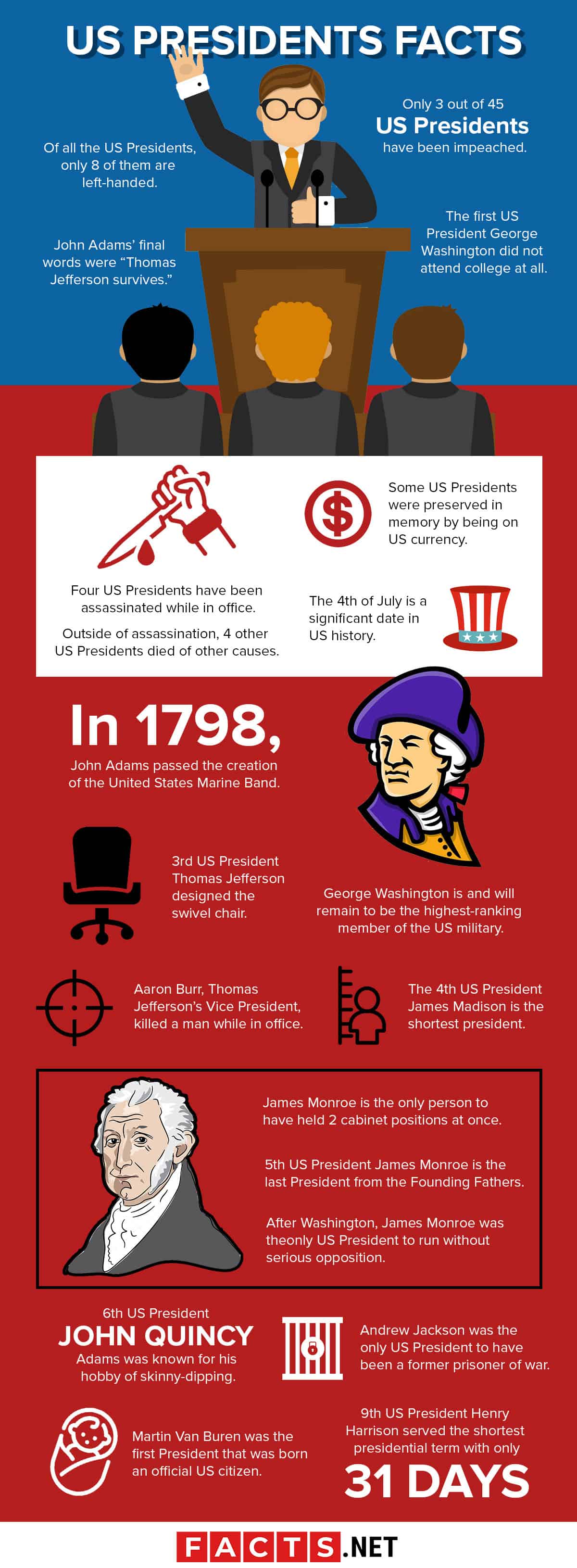
Of all the US Presidents, only 8 of them are left-handed.
The only left handed US Presidents include: James Garfield, Herbert Hoover, Harry S. Truman, Gerald Ford, Ronald Reagan, George H. W. Bush, Bill Clinton, and Barack Obama. However, 33rd US President Truman was forced into right-handedness at a young age.
Only 3 out of 45 US Presidents have been impeached.
Congress has formally impeached US Presidents Andrew Johnson, Bill Clinton, and Donald Trump. Still, there have been no US presidents removed from office through impeachment.
Four US Presidents have been assassinated while in office.
US Presidents Abraham Lincoln (1865), James A. Garfield (1881), William McKinley (1901), and John F. Kennedy (1963) all met the same unfortunate fate while serving the highest office in the US. This might as well be the saddest US Presidents facts on the list.
Outside of assassination, 4 other US Presidents died of other causes.
William Henry Harrison died from pneumonia in 1841 while Zachary Taylor suffered from inflamed stomach and intestines in 1850. Meanwhile, heart attack claimed Warren Harding in 1923, and cerebral hemorrhage caused Franklin D. Roosevelt’s demise in 1945.
Some US Presidents were preserved in memory by being on US currency.
The $1 dollar bill and quarter feature George Washington, the $2 dollar bill and nickel display Thomas Jefferson. Meanwhile, the $5 dollar bill and penny depict the image of Abraham Lincoln, and the $10 dollar bill stars Alexander Hamilton.
Moreover, Andrew Jackson appears on the $20 dollar bill, Ulysses S. Grant on the $50 dollar bill, Benjamin Franklin on the $100 dollar bill, and Franklin D. Roosevelt on the dime.
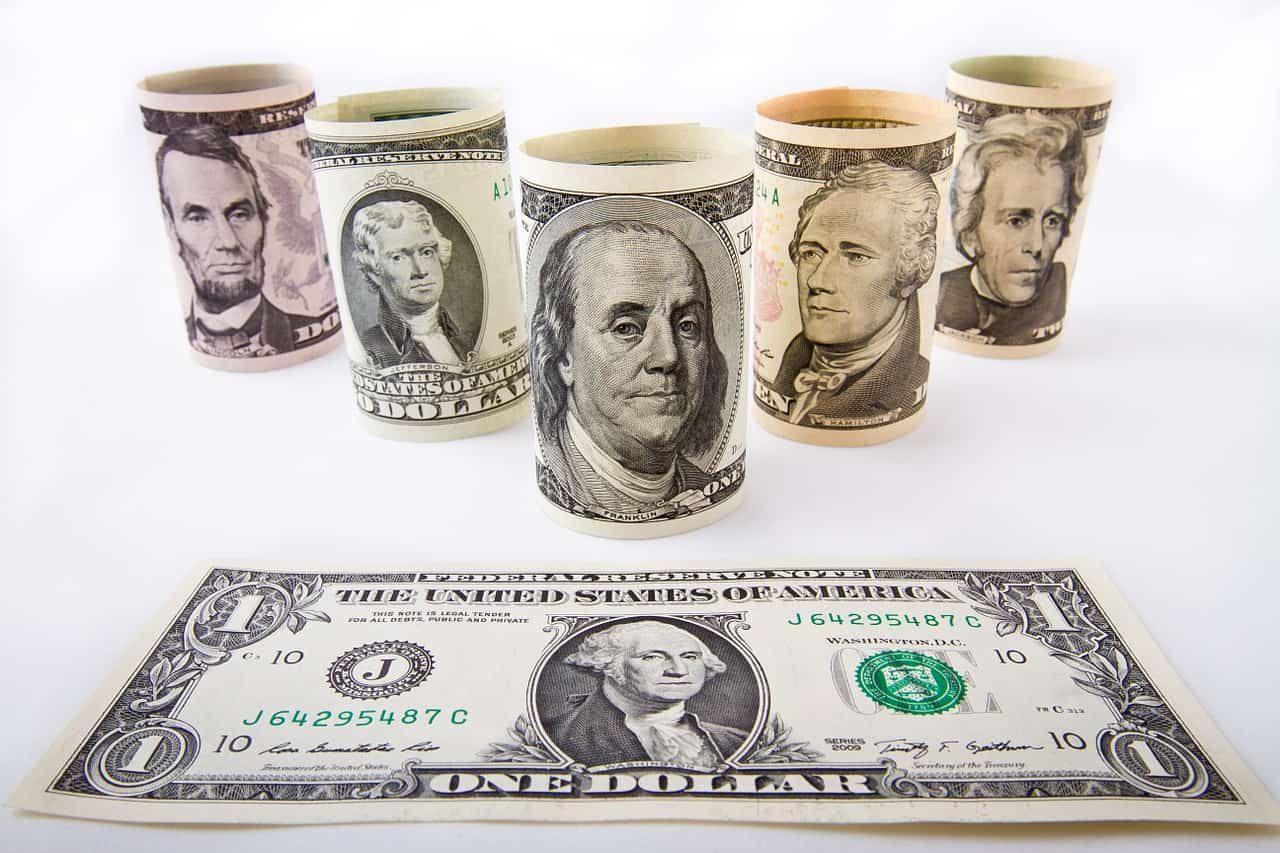
The 4th of July is a significant date in US history.
Among the first 5 US presidents, 3 died on the fateful date of fourth of July – Thomas Jefferson and John Adams in 1826 and James Monroe in 1831. On the other hand, John Calvin Coolidge was the only president born on this date in 1872 in Plymouth Notch, Vermont.
John Adams’ final words were “Thomas Jefferson survives.”
Unbeknownst to him, the other US President had already died only hours before he did. Adams and Jefferson might have been close friends and correspondents, but they also had rivalry back then.
The first US President George Washington did not attend college at all.
This also makes him the only major founding father without a college education. At age 15, young George left school as his family could not afford a college education for him. However, he had taught himself in many fields like countryside knowledge and map-making – skills that helped him serve well in the French and Indian War wherein he fired the first shot.
George Washington is and will remain to be the highest-ranking member of the US military.
A joint resolution passed on July 4, 1976 posthumously promoted Washington to the title of General of the Armies of the United States. As it makes George Washington the only six-star general of the United States, it only ensures that no other military member can ever outrank him.
In 1798, John Adams passed the creation of the United States Marine Band.
Also known as The President’s Own, this congressional act signed by the 2nd US President gave birth to the oldest active professional musical organization in the US. Aside from playing at the first-ever New Year’s celebration at the White House, the Band also played at the inauguration of Thomas Jefferson.
3rd US President Thomas Jefferson designed the swivel chair.
While a different person constructed the original chair, Jefferson added modifications into what is now also known as the revolving Windsor armchair. He placed an iron spindle between the top and bottom half, making the chair able to rotate on the casters. Later on, Jefferson used the chair as he wrote the Declaration of Independence.
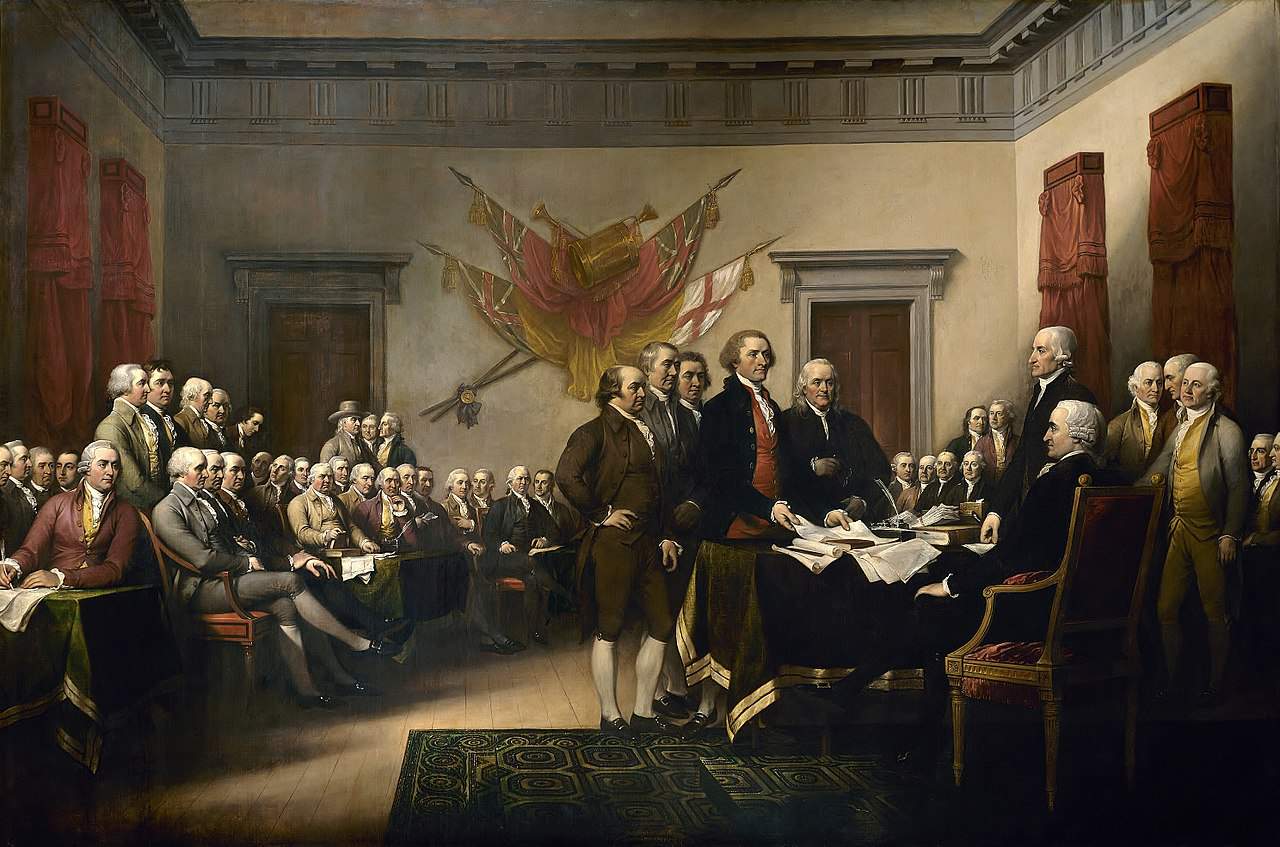
Aaron Burr, Thomas Jefferson’s Vice President, killed a man while in office.
The 3rd Vice President of the United States fatally shot his rival, Alexander Hamilton, during a duel or an ‘Affair of Honor.’ While the event makes Burr guilty of murder in New York and New Jersey, he returned to Washington, D.C. to finish his term while immune from prosecution.
The 4th US President James Madison is the shortest president.
Madison only stood at 5 ft 4 in. or 163 cm high. How’s that for neat US Presidents facts?
5th US President James Monroe is the last President from the Founding Fathers.
His first presidential term was also known as the ‘Era of Good Feelings.’ This period witnessed national unity after the War of 1812 where the Federalist party collapsed. Hence, the country transitioned into a one-party government.
After Washington, James Monroe was the only US President to run without serious opposition.
Monroe was up for a second term in 1820. However, no opposing candidates competed against him. All but one electoral vote supported James Monroe’s reelection, but only to preserve the complete vote record of Washington.
James Monroe is the only person to have held 2 cabinet positions at once.
He served as Secretary of State and Secretary of War in James Madison’s presidential cabinet. After Monroe’s 2-term presidency, he had already served his country for a total of 50 years, holding the most elected public offices among other presidents.
6th US President John Quincy Adams was known for his hobby of skinny-dipping.
Being the son of the 2nd US President, Adams was the first second-generation president to assume the position. Aside from this feat, Adam’s morning routine was to take plunges in the Potomac River every 5 in the morning.
Andrew Jackson was the only US President to have been a former prisoner of war.
The 7th US President was only 13 years old when he served as a courier in the Continental Army during the Revolutionary War. However, he and his brother Robert were taken as prisoners. Jackson received a punishment which caused a distinct permanent scar on his face.
Martin Van Buren was the first President that was born an official US citizen.
Van Buren was born on December 5, 1782. While he was already the 8th person to assume the position, Van Buren was the first President born after the signing of the Declaration of Independence.
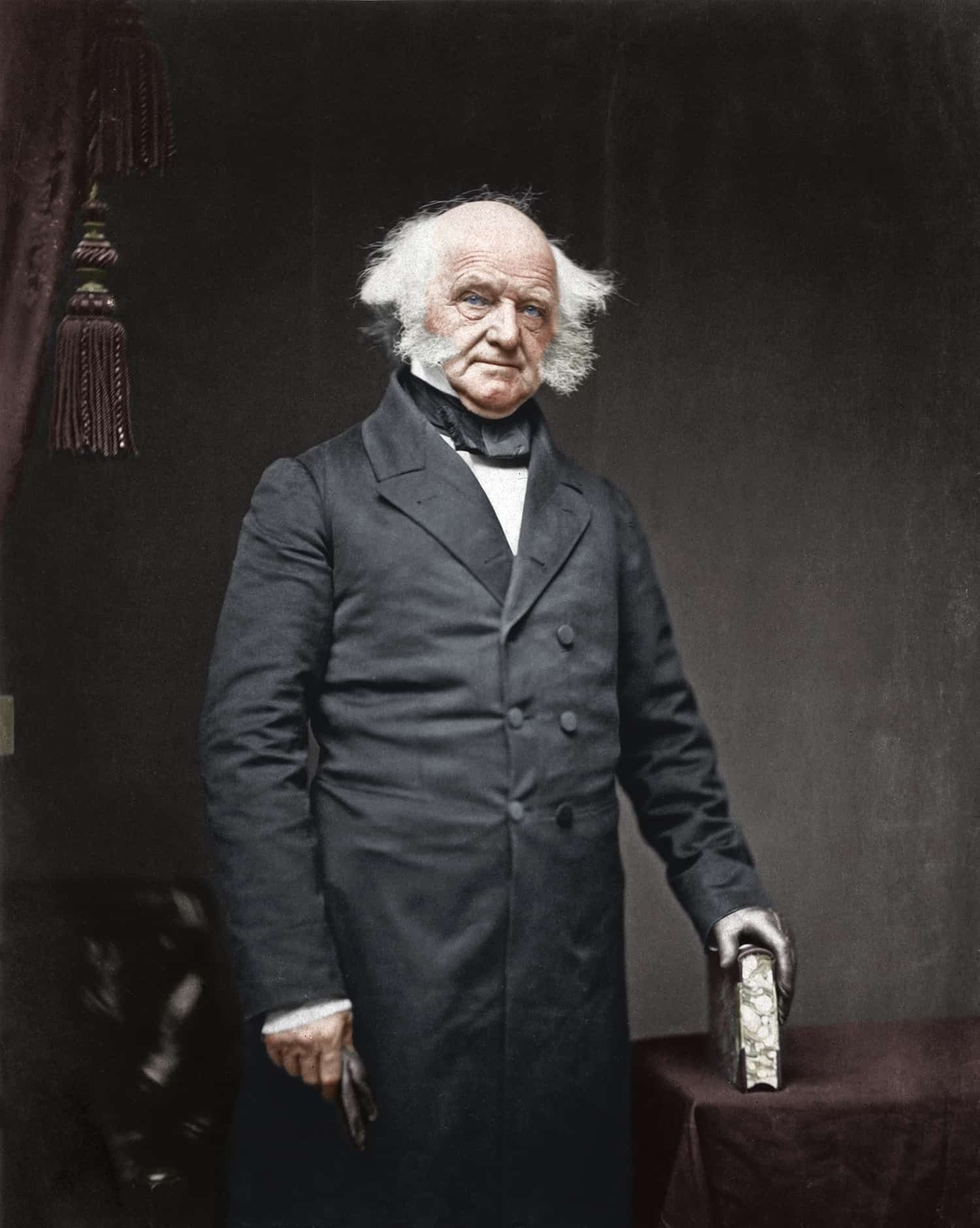
9th US President Henry Harrison served the shortest presidential term with only 31 days.
However, Harrison gave the longest inauguration speech to date which lasted 1 hour and 45 minutes. The fact that he talked for that long while being out in a snowstorm was what made him suffer and die of pneumonia a month later.
10th US Pres. John Tyler fathered the most known children by any president with 15.
Letitia Christian, his first wife with whom he had 8 children, died of a stroke in 1842. During this time, Tyler was only 1 year into his first and only term. He remarried with Julia Gardiner in 1844 and had another 7 children with her.
James K. Polk was often labeled as the first ‘Dark Horse’ President.
The 11th US President was the last among the Jacksonians to ever sit in the White House. Moreover, Polk was the last strong President until the Civil War.
12th US President Zachary Taylor did not learn about his nomination for weeks.
The Whig Party nominated him in 1948 without his knowledge or presence. When they sent the notification to Taylor, the latter had to pay for the postage so he refused and remained innocent of his nomination for a few weeks.
Millard Fillmore was the last President unaffiliated with the Democratic or Republican parties.
Together with his wife, the 13th US President founded the first permanent White House library. He was even reported to have raced to fight a fire that caught the Library of Congress in December 1851. Later on, Fillmore signed a bill to fund the replacement of the destroyed books.
Millard Fillmore was a US President who ‘lived the dream of teenage schoolboys.’
His first wife Abigail Powers was his teacher back when he was a student at the New Hope Academy, New York. Fillmore was only 19 years old then.
Franklin Pierce was ranked Brigadier General despite never serving the military before.
The 14th US President appealed to 11th President Polk to allow him to serve as an officer in the Mexican-American war. Pierce proved helpful as he led a group of volunteers at the Battle of Contreras. Despite being injured after falling off his horse, Pierce later helped capture Mexico City.
James Buchanan was the only president who remained a bachelor for life.
Speculations from renowned historians and writers have claimed the asexuality of the 15th US President. Volumes of Buchanan’s papers and letters have never mentioned anything about love, lust, romance, or physical attractions to either sex. Still, evidence suggests that both his and the King’s nieces destroyed letters from their correspondence following his victory in the 1856 presidential election.
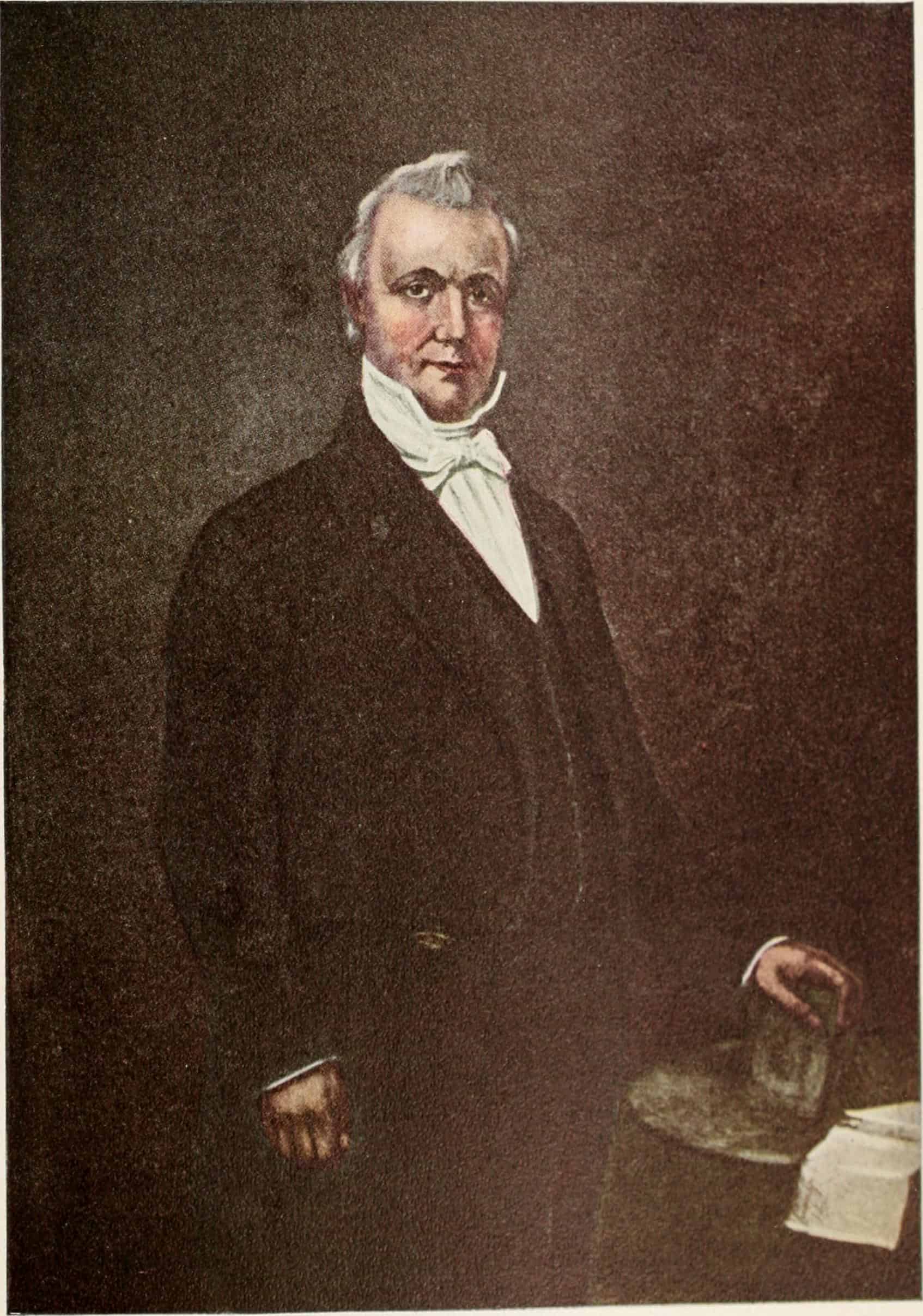
The 15th US President has been known to regularly buy slaves in Washington, D.C.
However, it was not for the usual reasons. It appears that James Buchanan buys these slaves only to set them free quietly in Pennsylvania.
16th US President Abraham Lincoln holds the record for the tallest president.
His height of 6 feet 4 inches or 193 centimeters goes a long way from that of Madison. Lincoln was also said to be a president of firsts – he was the first bearded US president, the first to be born outside of the 13 original states, and the first to appear in an inaugural photograph. The said photo even captured Lincoln’s murderer, John Wilkes Booth, standing on a balcony above.
Abraham Lincoln was the only US President to have a patent.
In May 22, 1849, Lincoln Patent No. 6469 for his invention – a device that frees steamboats that run aground. Despite only having around 18 months of formal schooling, Lincoln was still able to practice law without a degree.
Andrew Johnson was dubbed as the ‘Best-dressed President.’
His mother sent young Johnson to apprentice with a tailor. Thanks to his acquired knowledge and skills, the 17th US President was able to make his own clothes and suits.
Ulysses S. Grant lacked any political experience prior to his presidency.
Even so, the 18th US President successfully won the first major Union victory of the Civil War. The Republican Party still nominated Grant despite not having any experience or interest in politics which later earned the political novice bad critics for the issues during his administration. Grant acknowledged the claims anyway.
Rutherford B. Hayes was the first and only president elected by a congressional commission.
Also, the 19th US President was the first president to take the Oath of Office privately in the Red Room of the White House . Two days later, Hayes still took the public oath. This event followed the debated election results and the incident of the Inauguration Day falling on a Sunday.
Hayes was the only president that the Civil War has wounded.
The four times that horses were shot down from beneath him came with four injuries for R. Hayes.
James Garfield became a president of a college before being the 20th US President.
He graduated from Williams College in Massachusetts and then went to the Eclectic Institute to teach. In 1857, Garfield was only 26 years old when he became its president. Aside from serving this position, Garfield was also studying law and serving as an Ohio state senator at the same time.
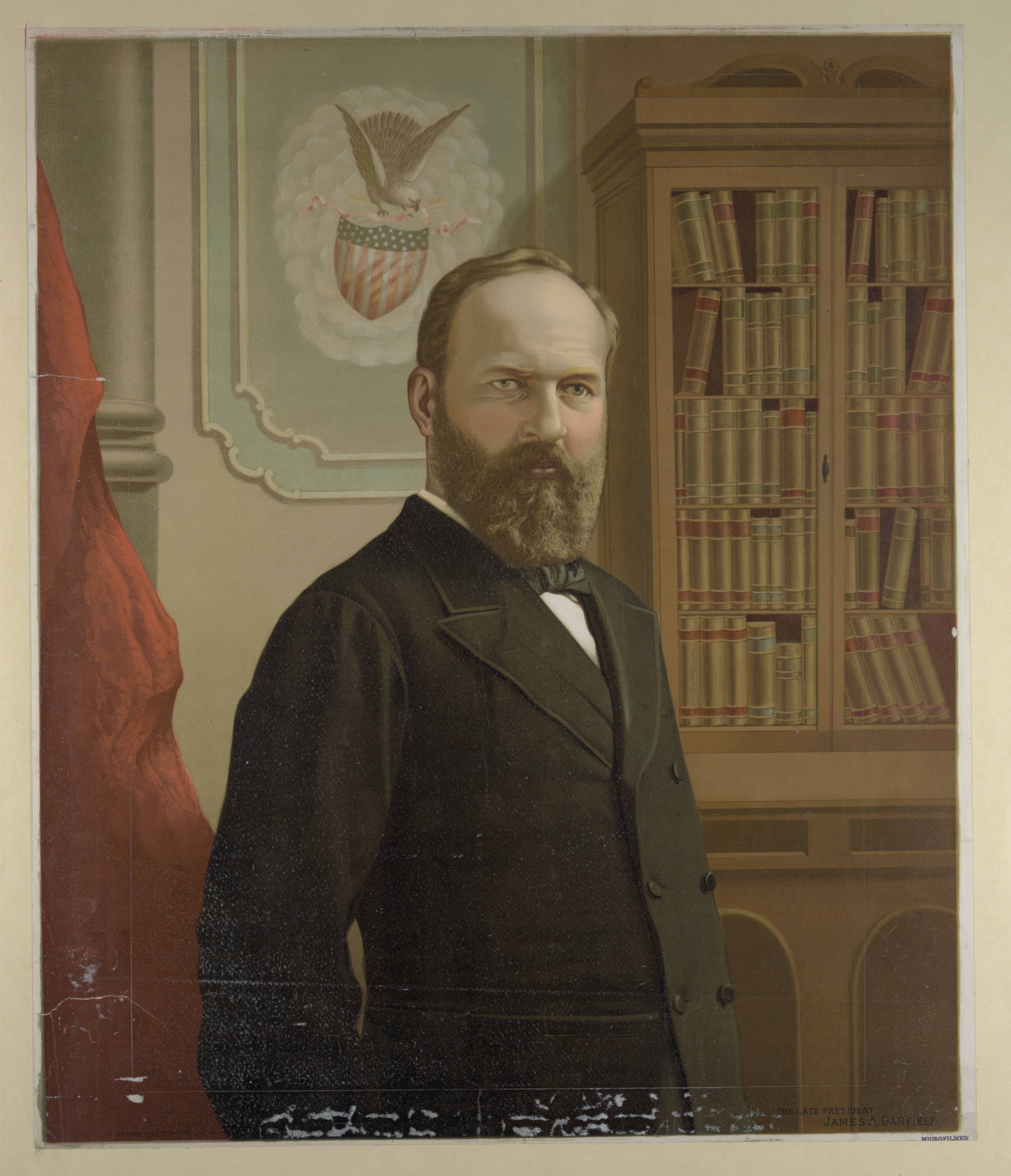
James Garfield was ambidextrous.
As if it is not amazing enough, the 20th US President could also write Latin with one hand and Greek with the other – all at the same time!
21st US President Chester A. Arthur held the first-ever White House yard sale.
Back in 1881, Arthur sold 24-wagons full of stuff from the White House, practically selling anything that was not nailed down. These efforts raised money to buy new furniture for the house.
Benjamin Harrison was the first president to enjoy electricity in the White House.
However, the 23rd US President and his wife were too scared of touching the light switches themselves for fear of electrocution.
In 1889, Harrison put up the first White House Christmas tree.
Harrison even put on the Santa suit himself for the entertainment, especially for his tight-knit family whom he loves to amuse.
Grover Cleveland was the only US President to serve 2 non-consecutive terms.
Both the 22nd and 24th US President, Cleveland also literally tipped the scales at over 250 pounds. This reason might explain his nickname – Uncle Jumbo.
Frances Clara Folsom became the youngest first lady when she married Cleveland.
She was only 21 when she became the first woman to marry a president in the White House as well. Like her husband, Frances also served as the 23rd and the 25th First Lady of the United States.
In 1897, William McKinley delivered the first filmed presidential inauguration.
While the 25th US President was reelected in 1900, his second term did not last that long. Anarchist Leon Czolgosz shot McKinley on September 6, 1901. Eventually, his death 8 days later marked McKinley as the 3rd American President assassinated while in office.
Theodore Roosevelt was the youngest President to serve.
His election for Vice President came on a ticket alongside President William McKinley. However, Teddy had to become the 26th US President when McKinley was assassinated in 1901. He was only 42 years old then.
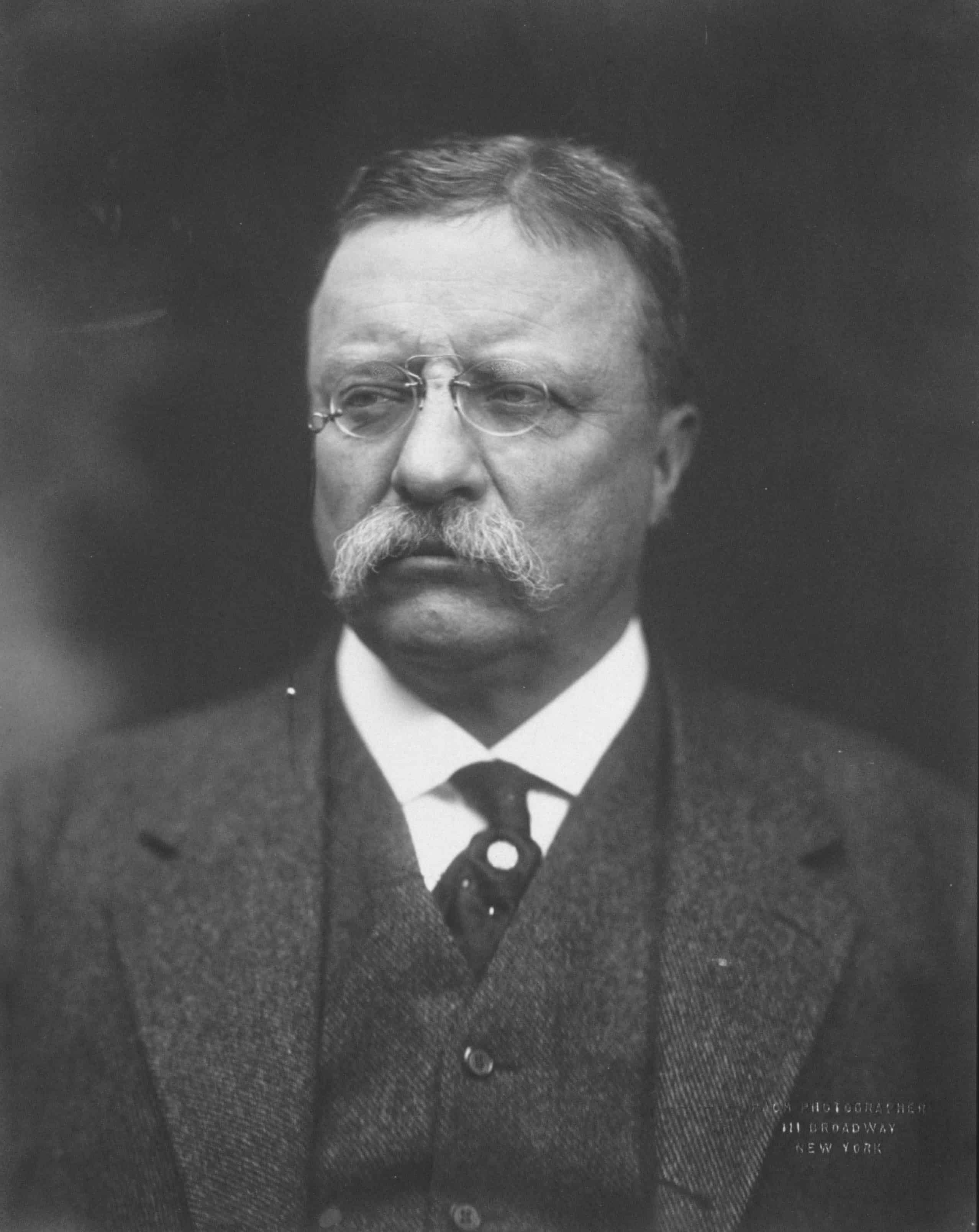
The 26th US President also fell victim to an assassination attempt.
Theodore Roosevelt was delivering a speech in Milwaukee when the shot hit him. However, Roosevelt proceeded to complete his 90-minute speech with the bullet in his chest all throughout.
William Howard Taft was the heaviest US President.
There were times that the 27th US President would tip the scales over 300 pounds which is nearly equivalent to 136 kilograms. In 1915, Taft even encountered an infamous hotel tub mishap wherein it had to be destroyed just for him to be able to get out.
The 27th US President swore 2 other Presidents into power.
After serving his presidential term, Taft went to serve as Chief Justice. It was from this position that he administered the oath of office of fellows Calvin Coolidge and Herbert Hoover.
Woodrow Wilson was the first president to make a live remote national radio broadcast.
It was only shortly before his death in November 1923 when the 28th US President addressed a national audience from his home in Washington, D.C. prior to the Armistice Day. The next day, around 20,000 people showed up at his house just for a few more words.
The $100,000 bill displays Woodrow Wilson’s face.
However, only a few selected people have ever laid hands on the bill. The design of the bill was mainly for the trade between Federal Reserve banks until it fell out of fad due to wire transfer intervention. While the Wilson bill still works in legal tender, it is nearly impossible to find someone that can break the change.
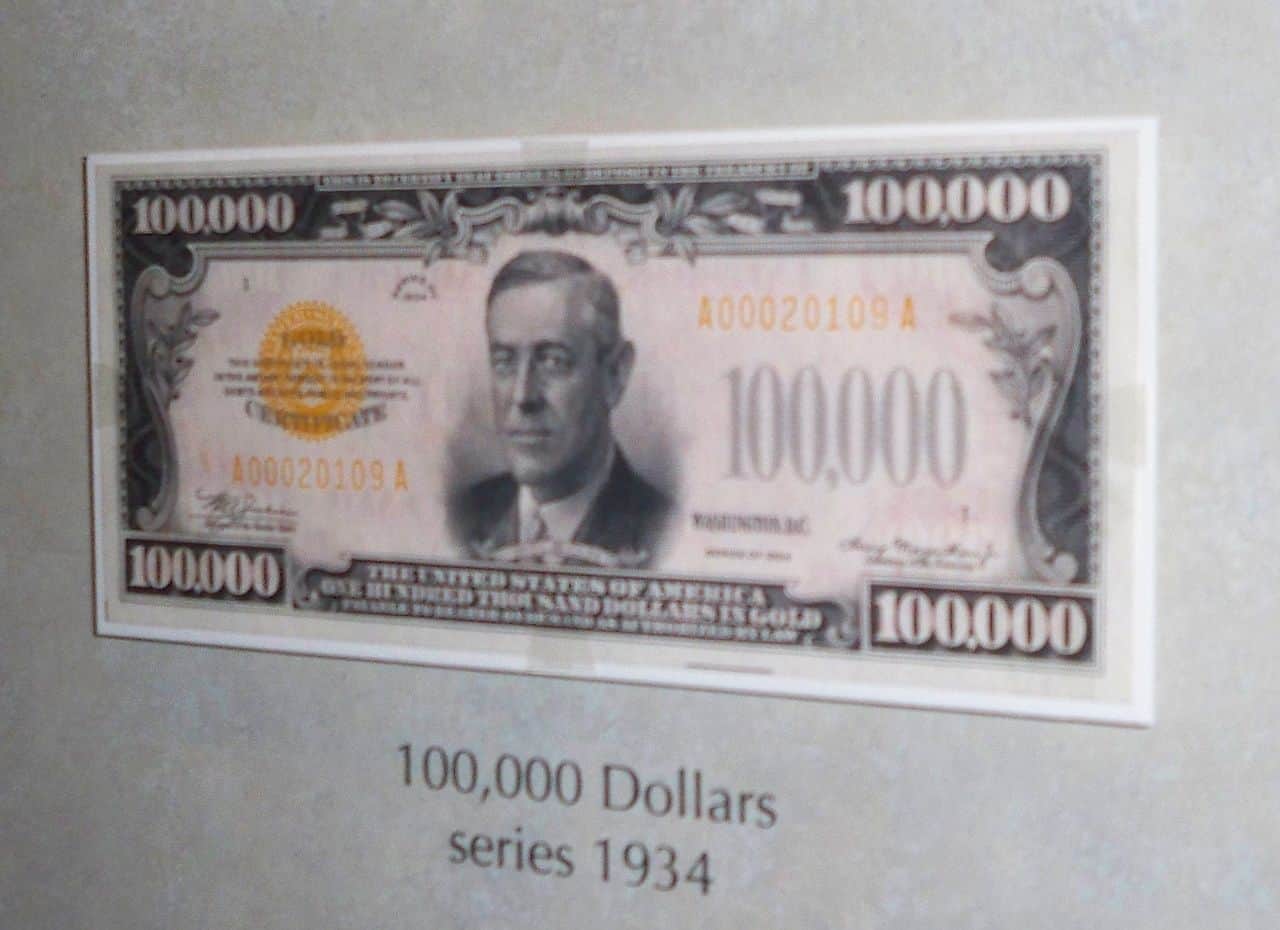
Warren G. Harding worked as a newspaper reporter before becoming the 29th US President.
Ever since he was in college, Harding has already shown interest and talent in writing and journalism. He later performed various tasks for the Marion Mirror, a Democratic-leaning newspaper that contrasts the Republican politics of the Harding family.
While in office, Calvin Coolidge is the first president to visit Cuba while still in office.
The 30th US President remained the only one to visit Cuba until Barack Obama did so as well in 2016. When Coolidge arrived in Havana for a conference, the warm reception pleased the president too much that he even broke his laconic stature to take a bow.
The 30th US President has a reputation for being a tough boss.
Reports tell of Coolidge randomly pressing all the buttons in the Oval Office. As the bells rang throughout the White House, Coolidge would then hide to watch his staff run in just to see who was working or not.
Herbert Hoover was already a self-made millionaire before becoming president.
After graduating with a degree in geology from Stanford University, the 31st US President spent his 20s trotting across the globe and locating valuable mineral deposits.
Hoover wrote the first presidential biography for another president.
He wrote numerous books after his service in office, one of which is ‘The Ordeal of Woodrow Wilson.’
Hoover's son had 2 pet alligators.
The ex-president would even let these unusual pets run loose throughout the White House occasionally.
Franklin D. Roosevelt is and will remain to be the only US President to win 4 terms.
Unfortunately, the 32nd US President died not long after being reelected for his fourth term. His record will remain that way due to the ratification of the 22nd amendment in 1951 which declared that “no person shall be elected … president more than twice.”
33rd US President Harry S. Truman survived an assassination attempt in 1950.
With the White House under renovation, Truman was staying at Blair House when 2 Puerto Rico nationalists tried to kill him. However, a White House guard died valiantly instead. Truman even heard the gunfight from his room.
Dwight D. Eisenhower was the first US President to oversee all 50 states.
The state of Hawaii only received statehood on August 21, 1958. While Eisenhower was already 34th down the history of leaders, he was the first to govern all 50 starting in his 6th year in office.
Eisenhower was one of the US Presidents who served in the military.
More particularly, he was one of the only 9 men to ever attain the military rank of five-star general. Eisenhower’s military career covered both world wars, but he never participated in active combat.
John F. Kennedy was the youngest elected President.
The 35th US President was only 43 when he took office in the White House, serving from 1961 to 1963.
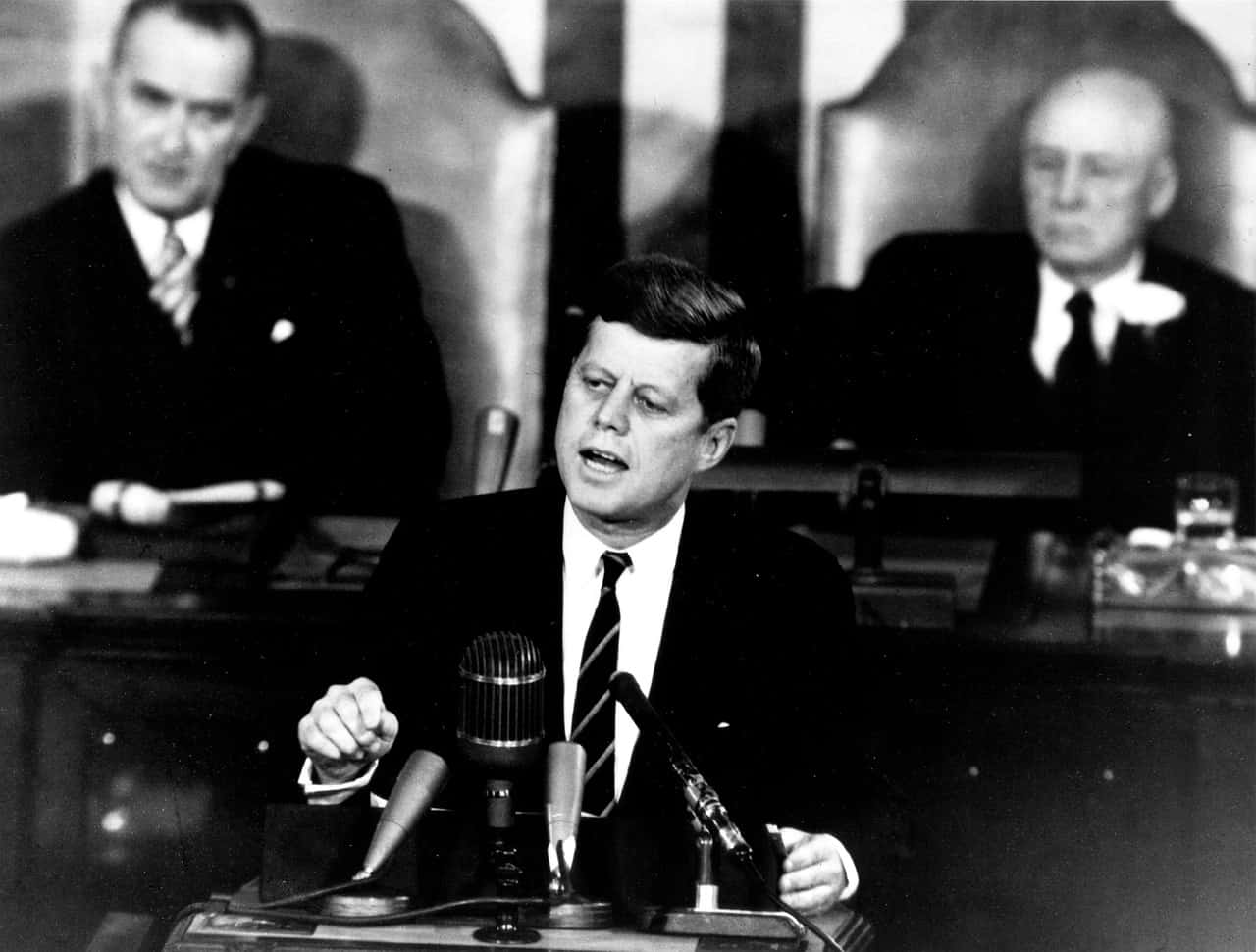
JFK donated all of his congressional and presidential salaries to charities.
As he was able to live off his family’s trust fund, the 35th US President freely gave his salary amounting to $100,000 per year. JFK’s generosity benefited charities such as the Boy Scouts and Girl Scouts of America and the United Negro College Fund.
Lyndon B. Johnson almost died in World War II.
While he was about to board his plane, L. Johnson had to use the restroom. Upon his return, Johnson had to board a different plane. Had he not, Johnson would not have become the 36th US President and would instead be killed in a plane crash.
Despite serving various administrative positions, Richard M. Nixon never saw combat in the Pacific.
The 37th US President served as a lieutenant commander in the Navy back in World War II.
Nixon was the first president to visit a nation not recognized by the American government.
In 1972, Nixon took a unique trip to China as the United States recognized Taiwan as mainland China’s legitimate government.
Gerald R. Ford was the only president who was not elected by the US voters.
It is applicable in both the President and Vice President position. In 1973, incumbent President Nixon appointed Ford as his VP following the resignation of then-VP Spiro Agnew. When the only President who resigned did, Ford was in place to become the 38th US President.
Before becoming president, Gerald R. Ford was once a fashion model.
Ford’s modeling days lasted throughout in college – even managing to make the cover of Cosmopolitan magazine.
39th US President James Carter received a Nobel Peace Prize in 2002.
Carter’s award recognized his decades of finding peaceful solutions to international conflicts, as well as advancing democracy, human rights, and the economy.
James 'Jimmy' Carter filed a UFO sighting report in 1973.
Although it’s still debated whether aliens exist, James Carter described a UFO sighting as “the darndest thing I’ve ever seen.”
Ronald Reagan was the oldest President to be elected.
When he took office in 1981, the 40th US President was already 69 years old. Reagan served in the office until 1989.
Reagan received the Most Nearly Perfect Male Figure Award in 1940.
This award from the University of California comes with the prize opportunity to pose nude for an art class learning to sculpt the human body.
George H.W. Bush shared the longest marriage of any first couple with his wife.
The 41st US President met his wife Barbara in 1941. Despite still being teenagers back then, they got married after just 2 years of meeting each other. Eventually, they died just within months of each other in 2018.
Bush survived a plane shooting incident in September 1944.
He was flying over Japan when shots were fired upon his aircraft in the Pacific. While Bush and a crewman managed to bail out, the latter’s parachute malfunctioned, dragging him down with the plane. A submarine by the Chichi-Jima coast rescued Bush eventually.
42nd US President William 'Bill' Clinton won 2 Grammys.
He received them for his album entitled “Prokofiev: Peter and the Wolf/Beintus: Wolf Tracks” and his autobiography titled “My Life.”
Mathematics supports Clinton's charm.
No, it has nothing about him being from the south. His secret is behind his symmetrical face which serves as an essential component in a human being attractive. Moreover, Clinton ranks among male models in terms of facial symmetry.
George W. Bush is the only president who has ever run a marathon.
In 1993, two years prior to his becoming the governor of Texas, the 43rd US President finished the Houston Marathon with a record of 3:44:52.
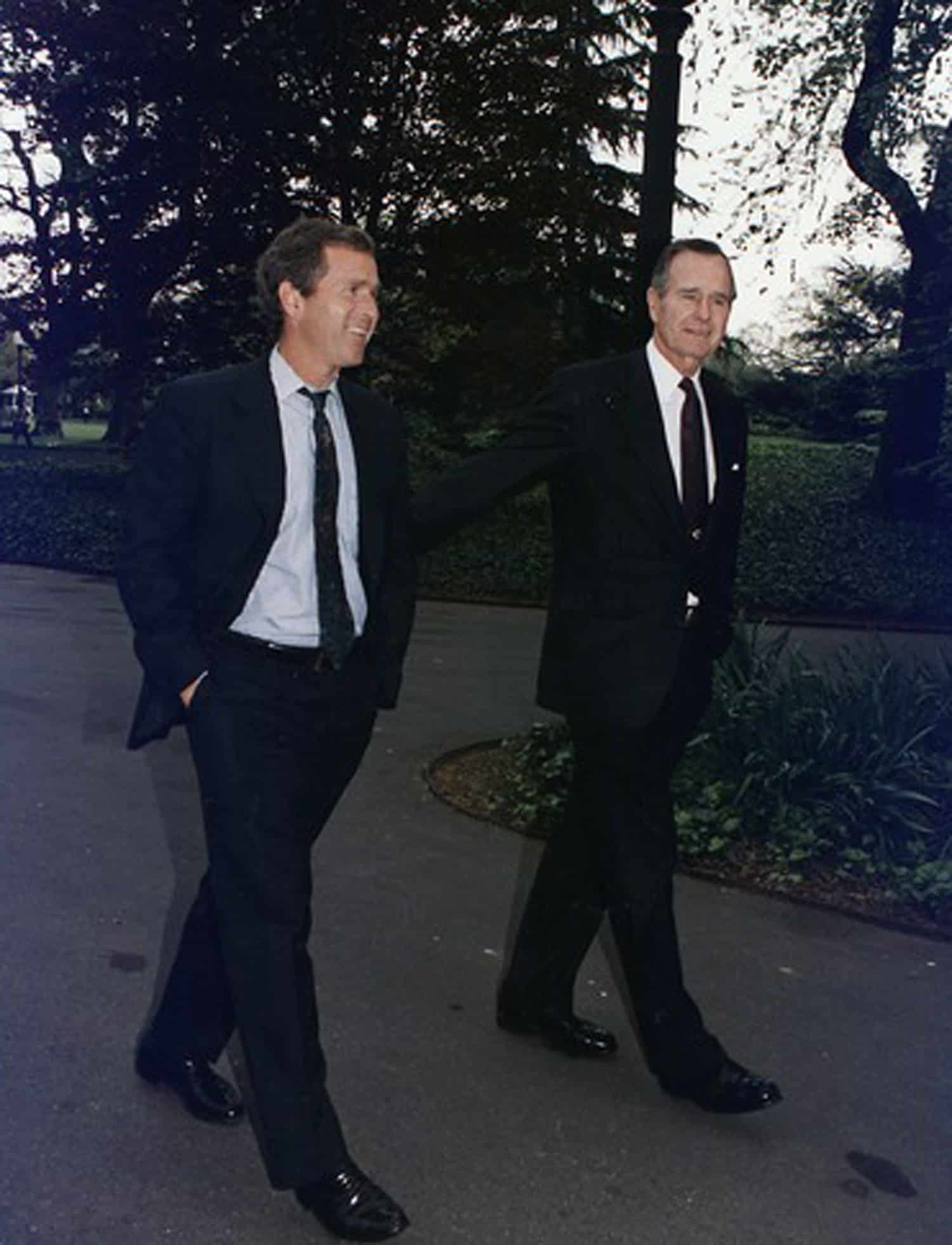
"Dubya" Bush was captain of the cheerleading team of his alma mater.
He graduated high school from Phillips Academy in Massachusetts where he also had a frat boy past.
44th US President Barack Obama won 2 Grammy Awards.
Both of the awards are for Spoken Word Album of the Year. First, Obama received it for Dreams From My Father in 2006 and second for The Audacity of Hope‘s audio version in 2008.
Barack Obama was the 2nd president to take the Oath of Office 4 times.
The 44th US President made a wording mistake in his oath for his first inauguration in 2009 so he had to retake it the next day. Hence, his total of 4 places him second only to Franklin D. Roosevelt.
Donald J. Trump is the owner of 18 golf courses across the globe.
While the 45th US President never filed for personal bankruptcy, he has filed bankruptcy for his business properties 6 times between 1991 and 2009.
At one point, Trump partly owned 3 major beauty pageants.
From 1996 to 2015, Trump was part-owner of Miss Teen USA, Miss USA, and Miss Universe.
R. Nixon and F. Roosevelt were the only people who appeared on a national presidential ticket 5 times.
Both have won the election in ⅘ of the races. Nixon won Vice President in 1962 and 1956, then President in 1968 and 1972. Meanwhile, FDR won 4 presidential elections and lost a VP election in 1920.
Was this page helpful?
Our commitment to delivering trustworthy and engaging content is at the heart of what we do. Each fact on our site is contributed by real users like you, bringing a wealth of diverse insights and information. To ensure the highest standards of accuracy and reliability, our dedicated editors meticulously review each submission. This process guarantees that the facts we share are not only fascinating but also credible. Trust in our commitment to quality and authenticity as you explore and learn with us.
